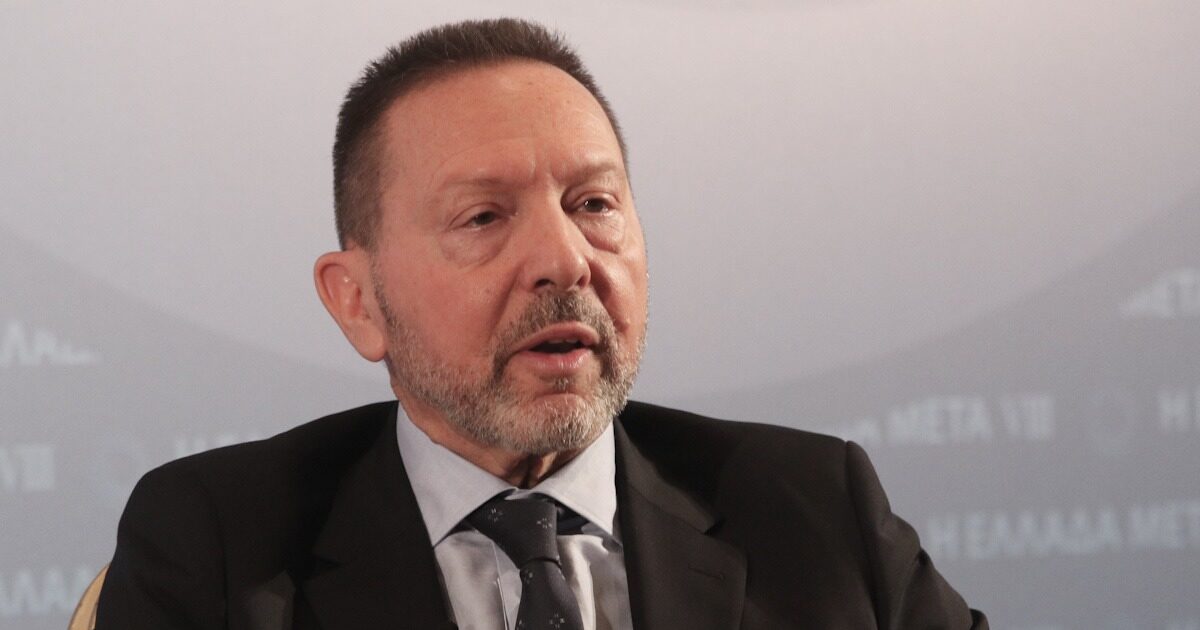While the US is exterminating investor confidence, Europe appears more credible thanks to its stable fiscal policy, according to the Bank of Greece Governor (BoG), Giannis Stournara.
Yiannis Stournaras sees an opportunity to establish the euro as a global reserve currency. Due to the unpredictable US trade policy, investors lose their confidence in the dollar and its role as a global currency is in danger. The euro could take his place, the BoG commander said in an interview with Handelsblatt.
The fact that such views come from Greece is remarkable. 15 years ago, the country’s unmistakable fiscal management had triggered an international crisis of confidence in the euro. Since then, however, Greece has laid the foundations for steady growth, with a program of hard reforms. A similar boldness is probably needed by Europe today.
Mr Stournaras argues that, in order to turn the euro into a reserve currency, a “stronger, more integrated and growing economy in the euro zone” needs a “stronger, more integrated and growing economy”. Especially given that Europe, as an economy with a high degree of extroversion, is particularly vulnerable to the deterioration of global economic conditions. But recent initiatives in EU economic policy show that the Union is strategically resilient, the Greek central banker said.
Mr Stournaras describes Germany’s decision in March to relax the fiscal rules, as well as the stimulation of the economy taken by the new federal government. In addition, the European re -equipment initiative, if combined with investment in cutting -edge technologies, has the ability not only to boost demand, but also to enhance the productivity of our continent in the long run.
Yiannis Stournaras, 68, a professor of finance and a banker with studies in Athens and Oxford, has been the Governor of the Bank of Greece for eleven years. He had previously served as Minister of Finance in the Conservative-Social Democrats Cooperation Government in 2012-2014 during the Greek crisis.
“The United States is overthrowing the rules of world trade in an effort to drastically reduce their imports by imposing duties,” says Stournaras. This shakes investor confidence in an already fragile and volatile investment climate and undermines the stability of financial markets. Investors’ reluctance to place funds in US federal bonds is a critical element. “This has a catalytic effect on the international financial system, as US federal bonds, as global reference securities, are the basis for the evaluation of shares and bonds internationally,” explains Stournaras.
The situation in Europe is quite different: “The heads of the euro area of the euro area are committed to stability, free markets, democracy and the rule of law. The euro is supported by a politically independent European Central Bank, which is primarily aimed at pricing stability and has proven its credibility under adverse conditions and external shocks, “Mr Stournaras said.
And he adds that, in order to further enhance confidence in the euro, the EU must complete the banking union, promote the Capital Markets Union and work in the direction of a common fiscal capacity.
‘We have a plan’
“The good news is that we have a plan,” Mr Stournaras said. The EU is beginning to implement proposals to promote the single market and increase Europe’s productivity and competitiveness. And these must be completed within a specified timetable, ideally within two years. According to Mr Stournaras, the Union of savings and investment proposed by the European Commission in March can make a decisive contribution to the channel of savings resources to productive investment.
To strengthen the role of the euro, it is crucial for Europe to be able to provide a common safe asset, “a quasi -state bond at a pan -European level,” Mr Stournaras argues.
In this case, the experience by the European Recovery Next Generation EU can be exploited. This was created with resources totaling € 750 billion after the Coronovirus pandemic to support the economic recovery in the European Union. It was the first time the EU issued its own bonds on a large scale for this purpose.
Mr Stournaras believes that Greece is sufficiently prepared for the future challenges. Since the 2010 public debt crisis until today, the country has achieved a comprehensive restructuring of its economy, has reduced bureaucracy, has promoted digital transformation and has made large infrastructure investment.
From this crisis the EU has also drawn important lessons, he is convinced. “These include the need for timely intervention, a common approach in times of crisis, and the avoidance of austerity measures that bring opposite effects from the pursued.” The reaction to the pandemic has proved this.
“Greece is ready to contribute to” New Europe “,” says Mr Stournaras. “We firmly believe in the strongest integration through the Union of Capital Markets, the completion of the banking union and the implementation of joint investment projects for defense purposes and to adapt to climate change.”
